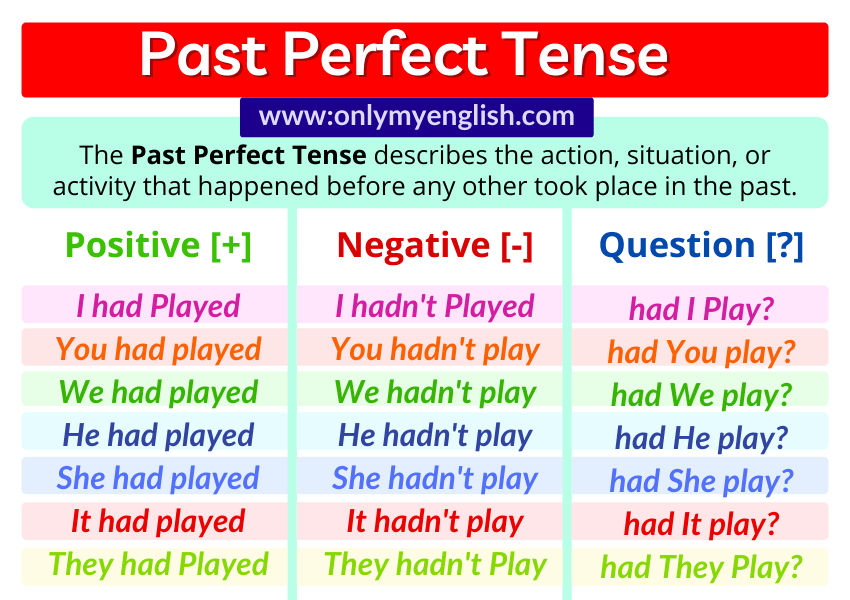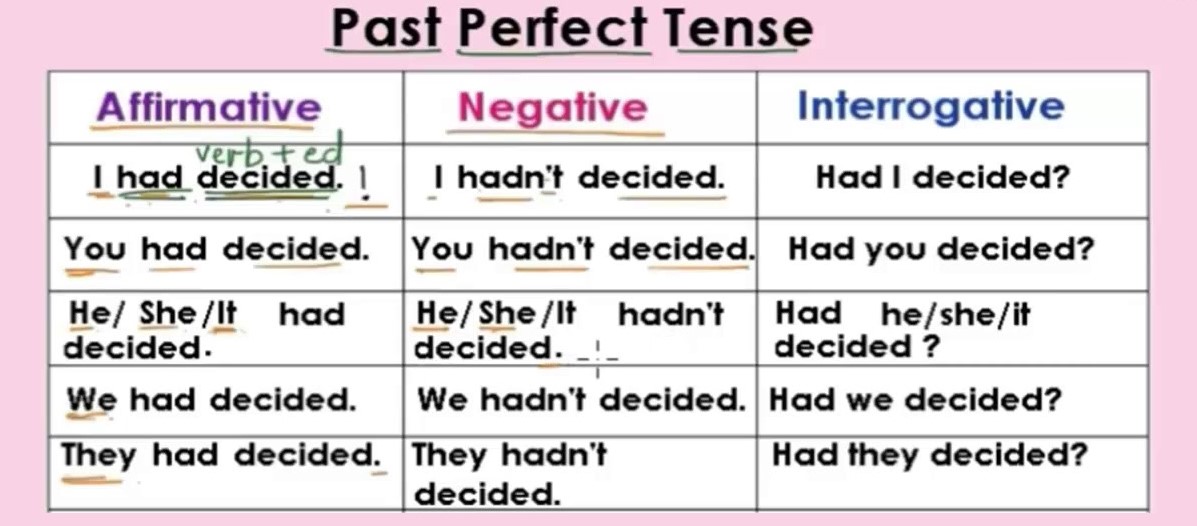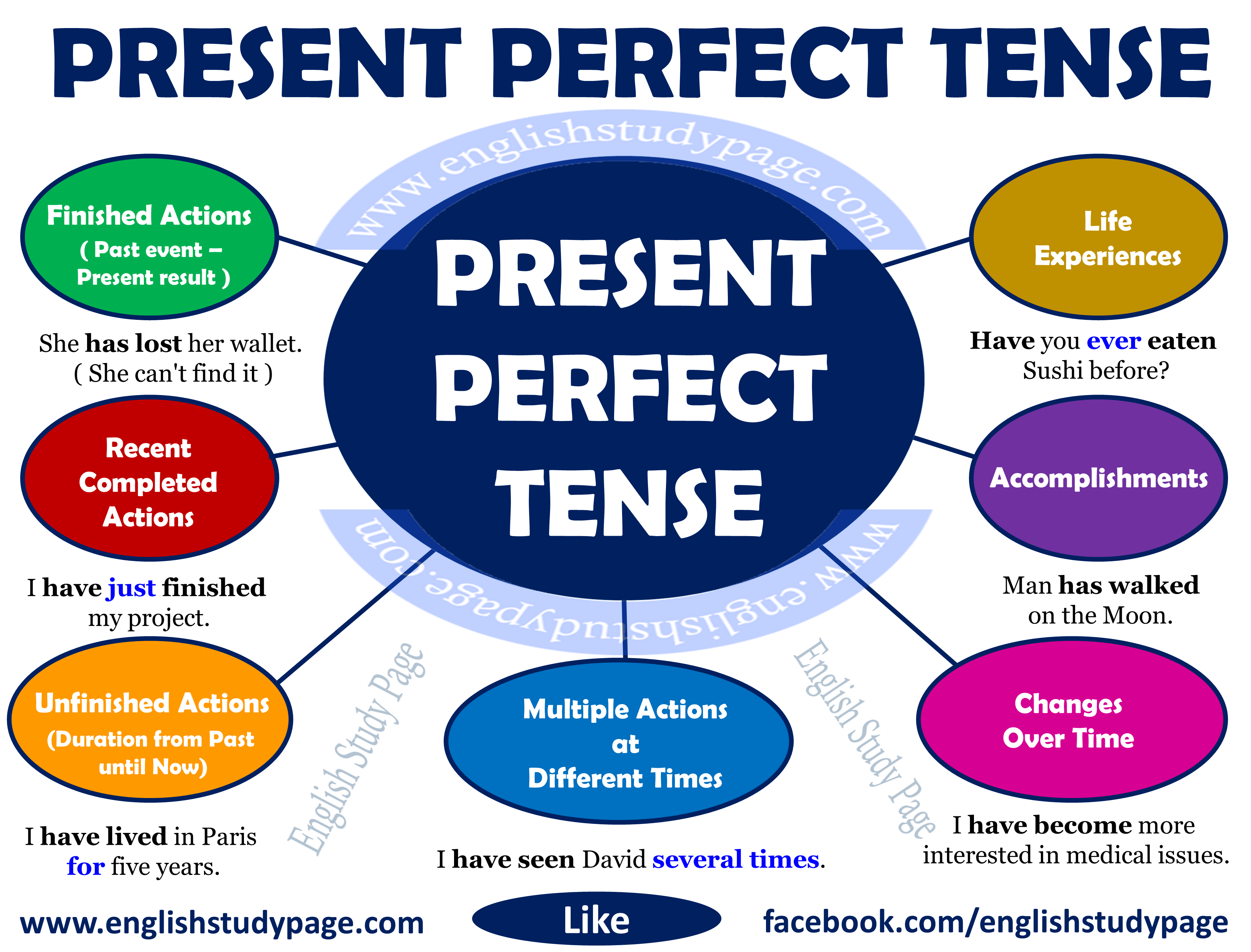

Do not use Past perfect tense while you are not expressing some sequence of events.We wished we had brought our family on vacation.Here, the speaker is showing dissatisfaction with his or her decision and is stating the action he or she wishes had taken place. The following examples express an event that did not actually happen in the past. Show dissatisfaction with the past actions or events He had thought it would be a great day.She had wondered how did the airplanes fly.The teacher had said it would be a difficult paper.They may have occurred once or over a period of time. However, all these actions are now complete. The following examples express the speech that took place in the past. If you had worn the mask, you would have not got infected.If we had purchased coupons, we would have got the grocery.Only if you had listened to me, you would have not got confused.If I had studied during the class, I would have cleared the exams.Here, the conditional action is a requirement to the consequence or result of the condition.

The following examples express the conditional actions that took place in the past. He had kept convincing her to marry him repeatedly.They would have never discovered the truth without enquiring.He had admitted his love to her many times.I had delivered lectures for years without ever having to prepare for them.The following examples express the actions and events that started and ended in the past but also were for a period of time i.e. He had never realized his talent until she praised him.Įvents of duration before something in the past:.They had forgotten the books until the librarian reminded them.After she had attended the internship, she became a practicing lawyer.I had never traveled on a cruise before I went to Goa.Also, they were completed before the beginning of the second event in the past. The following examples express the actions that began in the past and were also completed in the past. Examples of Past Perfect Tense Past completed actions before another begin:

Thus, you are dissatisfied with your past action.
#Past perfect tense movie
It means that you did not purchase the movie tickets and were unable to watch the movie. Sentence: I wished I had purchased the movie tickets in advance.


 0 kommentar(er)
0 kommentar(er)
